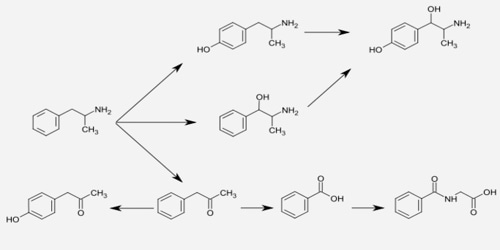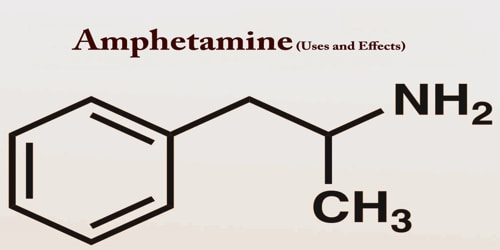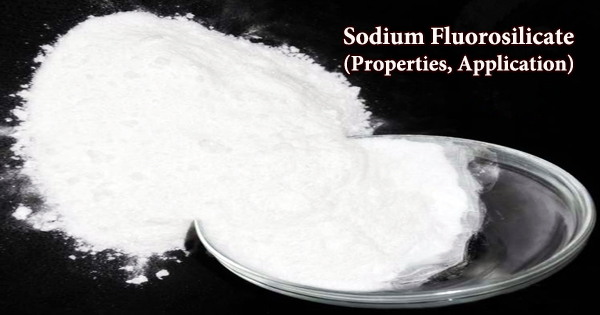Amphetamine (Uses and Effects)
Definition: Amphetamine (Common names for amphetamines are speed, fast, up, uppers, louee, goey and whiz) is a potent central nervous system (CNS) stimulant that is used in the treatment of attention deficit hyperactivity disorder (ADHD), narcolepsy, and obesity. It is used to treat some medical conditions, but it is also highly addictive, with a history of abuse.
Amphetamine was discovered in 1887 and exists as two enantiomers: levoamphetamine and dextroamphetamine. Amphetamine properly refers to a specific chemical, the racemic free base, which is equal parts of the two enantiomers, levoamphetamine and dextroamphetamine, in their pure amine forms. The term is frequently used informally to refer to any combination of the enantiomers, or to either of them alone.

Amphetamines are stimulant drugs that increase the activity of certain chemicals in the brain. They refer to a number of slightly different chemical compounds with very similar activities.
Some examples of amphetamines include:
- dexamphetamine, which is used for medical purposes to treat conditions such as Attention Deficit Hyperactivity Disorder (ADHD); and
- amphetamine sulphate, known mainly as speed
- methamphetamine, which is a more potent form of amphetamine, known mainly as ‘crystal’, ‘meth’, ‘rock’ or ‘ice’.
Amphetamine increases monoamine and excitatory neurotransmission in the brain, with its most pronounced effects targeting the norepinephrine and dopamine neurotransmitter systems. Some people use amphetamines illegally to become intoxicated. Amphetamines are sometimes produced in backyard laboratories and mixed with other substances that can have unpleasant or harmful effects.
Uses of Amphetamine: Amphetamine has been trialled for a wide variety of conditions. Now, it is mainly used to treat ADHD, and, rarely, depression. In the past, it has been used to treat narcolepsy and to help with weight loss, but this is less common now.
Historically, Amphetamine has been used to treat nasal congestion and depression. It is also used as an athletic performance enhancer and cognitive enhancer, and recreationally as an aphrodisiac and euphoriant.
People use drugs for a variety of reasons. Some of these include:
- To have fun, forget problems or as a form of escapism
- To gain confidence and socialise
- Out of curiosity
- To lessen inhibitions
- To remove personal responsibility for decisions
- To celebrate or commiserate
- To relieve boredom and stress.
- Self-medication to cope with problems.
- To stay awake or alert.
Amphetamine is used by some athletes for its psychological and athletic performance-enhancing effects, such as increased endurance and alertness; however, non-medical amphetamine use is prohibited at sporting events that are regulated by collegiate, national, and international anti-doping agencies.
Amphetamine sulphate, or speed, is also used for recreational and non-medical purposes. It can lead to euphoria, and it suppresses the appetite, which can lead to weight loss. Used outside the medical context, stimulants can have severe adverse effects.

Effects of Amphetamine: Amphetamine can produce many side effects, ranging from mild to severe.
Physical side effects include:
- low or high blood pressure
- Raynaud’s phenomenon, where there is reduced blood flow to the extremities
- erectile dysfunction, and especially frequent or persistent erections
- rapid heart rate
- abdominal pain
- loss of appetite, nausea, and weight loss
- acne, rash, hives
- blurred vision
- dry mouth
- teeth grinding
- nosebleed
- profuse sweating
- nasal congestion
- increased likelihood of seizures for susceptible individuals
- tics
- faster, deeper breaths, especially in those with other lung conditions
- difficulty urinating
There may also be psychological effects. These include:
- increased alertness and focus
- apprehension, anxiety, irritability, and restlessness
- mood swings
- insomnia
- changes in libido
- grandiosity, or an exaggerated sense of one’s own importance
- obsessive behaviours
Amphetamine has also been shown to produce a conditioned place preference in humans taking therapeutic doses, meaning that individuals acquire a preference for spending time in places where they have previously used amphetamine.
Information Source:
















